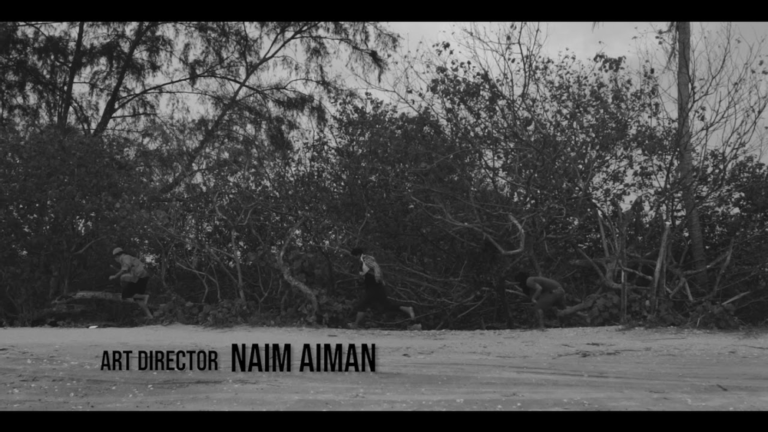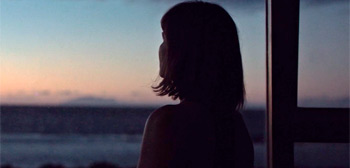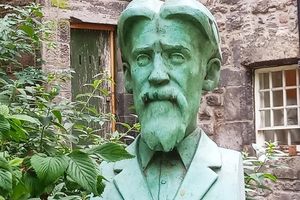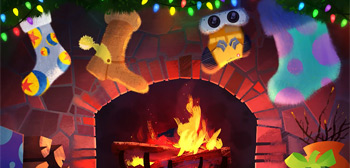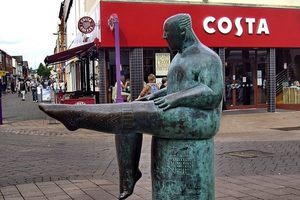DATING AMBER: In Conversation with Lola Petticrew
Upon the official release of David Freyne‘s coming-of-age hit currently taking the world by storm, Film Inquiry’s Marc Ricov spoke with the Belfast-born actress to talk about her experience on making the film, who went on to discuss her blooming friendship with co-star, Fionn O’Shea, and how playing a role like Amber was a somewhat transformative journey that helped with her own stages of self-identity.
Marc from Film Inquiry: Hi! Thank you so much for taking time to chat with us.
Lola Petticrew: No, thank you so much for having me!
First of all, I really want to say in regards to the film, congratulations! Your work was absolutely brilliant and even down here in Australia, you’ve already got a bunch of fans.
Lola Petticrew: Oh thank you so much pal, that’s so kind! (giggles)
I believe the film is officially opening on the 10th and because we’re a day ahead, there’s already been some screenings and yeah, it’s been doing quite well so far. How are you feeling since the release of it?
Lola Petticrew: Yeah, I mean we’re really excited. We sort of did the UK and Irish release earlier in the summer, and you know, we’re just still really buzzed off that and we get to do it all over again, it’s incredible.
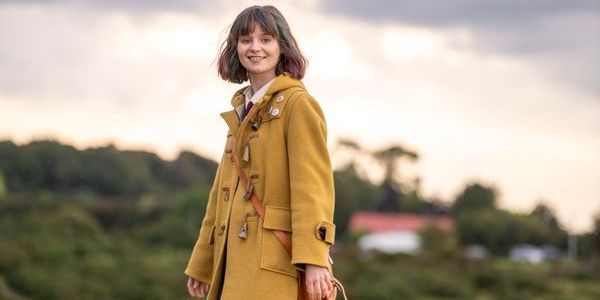
Yeah, well that’s the thing, you’ve already done a couple of big films…I recently watched the one where your mother…umm…what is it? She gets pregnant and it’s like you have to mother her –
Lola Petticrew: A Bump Along The Way!
A Bump Along The Way, that’s the one! Yes. I watched that and it’s interesting because your character in that is in a similar position to what your character is in ‘Dating Amber’ – you have to be the responsible one!
Lola Petticrew: (Laughs)
And yeah, it’s interesting, you know, like when I get to interview actresses like yourself, I like to watch the work that you’ve done and the things that your about to do. Do you feel like Dating Amber was a big jump for you?
Lola Petticrew: Yeah definitely, I mean, I think when we filmed it we didn’t really expect it to have…not that we didn’t expect it – because we really believed in the film, but we were sort of focusing on making the best thing possible and then sort of just seeing what happened, but you know, we couldn’t be more delighted that it’s reaching so many people, because obviously with the subject matter we wanted to be able to reach the audience it’s intended for.
It definitely comes across in the film. I’ve seen a couple of interviews with yourself, Fionn, and David as well, and the biggest talk is always about the great chemistry you and Fionn have on screen. The script was so well written and it came down to your chemistry bringing all that to life and now you and Fionn are good friends, is that correct?
Lola Petticrew: Fionn is definitely my best friend! I mean, we were so incredibly lucky, I think that in a beautiful kind of way, we fell platonically in love like Eddie and Amber.
One thing I did notice about this film, is that – there are a lot of coming-out films, but this one was interesting because you rarely see a film that focuses on both genders going through that process and I thought that was a really interesting perspective, and you and Fionn both had really great takes on your characters and so I wanted to know, is there anything about this specific character that really resonated with you?
Lola Petticrew: Yeah, I mean, I sort of talked extensively, especially during the UK and Irish release about how playing Amber was a massive part in me coming to terms with my own sexuality. I think I just realised that I so much related to Amber’s journey and to her feelings and her sexuality, that, I had been neglecting my own and I think, you know, when I read the script I think that I thought that I knew her so well, but I think in the end she probably knew me much better.
Absolutely! I did want to ask you, with your background, are you from a smaller town in Ireland or are you from a big city?
Lola Petticrew: So, I’m from Belfast, but the funny thing about Belfast is although it’s a big city, it sort of has little pockets and so I lived in west Belfast, and you know when you grow up you don’t really leave your little pocket.
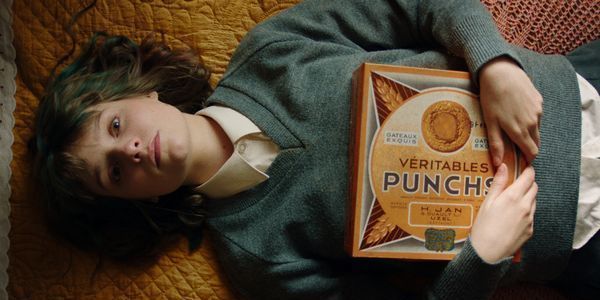
Yeah and that’s why I wanted to know because, especially for kids coming-out in smaller towns or smaller places – it’s difficult for everyone – but it would be a lot harder in a place where no one wants to talk about it and I just thought it’d be interesting to know, like you said with the journey of your own sexuality, if that played a part in how much this film meant to you, because it’s based in a small town where everyone talks, does that make sense?
Lola Petticrew: Yeah, I mean, this film means so much to me for an abundance of reasons, but I think that definitely in the way that it’s transformed my life beyond measure, I feel like, you know, a completely different person to the person that auditioned. And we had a lot of talks during the meetings of it, about how we wanted to represent people and give people strength and I think in the end, the film ended up doing all of those things. Umm, which is something that I honestly don’t even think I can put into words, you know, and it resonates so much stronger for me how much this film will hopefully mean to other people and we’ve seen that in the UK and Irish release. We sort of get messages from kids quite a lot, kids from small towns saying that they, you know, they finally felt represented on screen and also that it was the kind of film they wanted to see, because I know growing up I would have loved to have seen something like this in the cinema.
Yeah and that’s the thing, I’ve been writing some notes about it and the really nice thing is that you know, homosexuality, in general, is so much more celebrated in the media, not just in cinema these days, but even TV and music. And I think the really important thing with Dating Amber is that David, with his story, feels deeply personal and while it’s a comedy at heart, he is also reminding us that there was still a lot of pain in the past that we can’t forget about. You know, there were a lot of struggles that people went through and so, times are changing, but I think that’s why the story feels very contemporary because it also brings that to the surface.
Lola Petticrew: Yeah, I think as well, sometimes we think that we’re a lot more progressive than we are but, you know, I was on set of Dating Amber the day that my home in the north of Ireland passed marriage equality and that was in 2019. So, we’re talking about 25 years on from when this film is set. So I think that sometimes we think we’re a lot more socially progressive than we are and just because it’s easier to come out, I don’t think that it makes it easy.
That’s exactly right. That’s why filmmaking is so great because you can remind audiences while still having fun about those kinds of things, which actually brings me to my next point. The one thing that I think really works in this film’s favour is – and please take this as a compliment – Irish people have the most brilliant sense of humour and I don’t know how to describe it, but it’s something that Aussies can understand very well, even if it’s something completely alien to us. At any point throughout the phase of filming, I know that you stuck to a script quite a lot, but did you get to improvise with your own humour a bit? Because it comes across very, very natural to me.
Lola Petticrew: We actually improvised quite a lot!
Oh, you did?
Lola Petticrew: Yeah, yeah. Dave gave us quite a lot of freedom actually and we sort of improvised bits during rehearsals that ended up in the script, and then sort of on the day, sometimes, Dave would let us just go off. I mean, I think that the ‘gay wall’ was actually something that was improvised. I mean, the start of it and the end of it was definitely scripted but the ‘big gay wall’ thing was all very much improvised.
Yeah, that was great, that was excellent! And actually, there was one thing I did not want to forget to ask you. I have Googled it, but I want to hear it from an actual Irish person. Umm, I would like to have your definition of what it means to ‘shift’ someone –
Lola Petticrew: (Bursts into laughter)
…Because it’s mentioned all throughout the film and I’m sure that we’re going to have a lot of our readers wondering what that is when they watch the film, so without giving too much away, can you give us an idea of what that actually means in Irish terms?
Lola Petticrew: Kissing. Just kissing someone.
Oh! It’s just kissing, is it? Okay, maybe it’s just because the school kids make such a big deal out of it in the film, it sounds like their getting up to some really crazy stuff at school over there in Ireland, but ‘shifting’ is a great expression and yeah, I don’t know, it’s a really cool thing that pops up every now and then throughout the film and I was like “I have to ask that question”.
Lola Petticrew: Yeah the…“do you want to shift?” I mean, I think we can all remember somebody on the playground coming over and being like…Like in Belfast, my generation would say “will you meet…” which meant, will you kiss my friend?
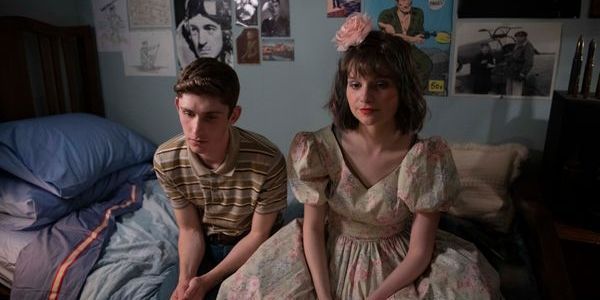
Okay, all right. So, I could probably click onto that a little bit faster if heard someone say it.
Lola Petticrew: Yeah! (laughs)
Well look, thank you so much for that. I’m really happy that I got to speak to you and it’s been such a pleasure just getting those small insights. I wish you so much success with your future and success with this film as well. I will promote the absolute hell out of it here in my city because I’m a huge fan of it already, and I’ll actually be having some friends over to watch it again very soon. So yeah, thank you so much for your time and yeah, good luck!
Lola Petticrew: Thank you so much for talking to me, pal!
We’d like to thank Lola Petticrew for being such wonderful company and taking the time to speak with Film Inquiry.
Does content like this matter to you?
Become a Member and support film journalism. Unlock access to all of Film Inquiry`s great articles. Join a community of like-minded readers who are passionate about cinema – get access to our private members Network, give back to independent filmmakers, and more.
Join now!
